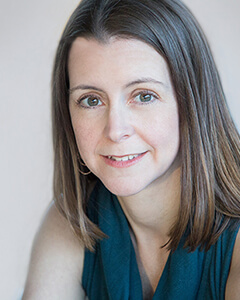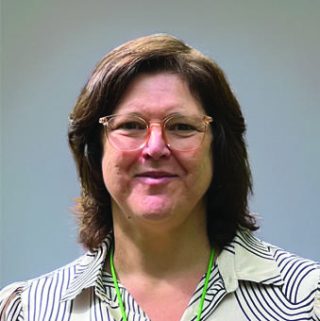FOCUS
Where coaches learn to coach
By Suzanne Bouffard
Categories: Coaching, Learning communitiesApril 2022
Most of today’s instructional coaches didn’t start their careers planning to work one-on-one supporting other educators. Most of them started out as excellent teachers, focused on the learning needs of young people. And although the best coaching programs select coaches based on their listening, reflection, and facilitation skills, new coaches rarely have formal preparation in supporting adults.
To help coaches grow into their roles, Learning Forward’s Coaches Academy provides personalized support to districts and states. Offered both in person and virtually, the Coaches Academy builds coaches’ knowledge and capacity through facilitated sessions with an expert coach, collaborative learning communities, tools and strategies tailored to the district’s or state’s needs, and individual support for coaches and their supervisors.
Like coaches themselves, the academy aims to bring out the best in everyone who participates, and it evolves over time through reflection, responsiveness, and a commitment to growth. Most recently, that growth has included pivoting to virtual offerings during the pandemic and helping coaches build their professional networks beyond local geographic boundaries.
Defining the role of coaches
Among the thousands of educators who have participated in the Coaches Academy are about 500 coaches from North Dakota, who enrolled in the program through the state’s Teacher Support System. The North Dakota Coaches Academy began in 2010 after the state issued a mandate for all schools to employ coaches to support K-2 reading instruction. Since that time, the state’s coaching program has grown as districts have built their capacity and come to see the powerful impact coaching can have.
Erin Jacobson, the North Dakota Teacher Support System’s coordinator, believes the Coaches Academy has been a big part of that success. She points to the academy’s focus on coaching fundamentals as key factors. Participants “come for the lens of what coaching is and what the basics are,” she says of the 40 to 100 coaches and principals who voluntarily participate in the academy each year.
“Coaches get hired without necessarily having a clear idea of how to start,” she says, and sometimes they end up “shooting themselves in the foot — for example, by providing too many resources to new teachers” instead of helping teachers learn to find answers themselves.
Her colleague, assistant coordinator Marijke Leibel, adds, “It gives them resources and guides what the expectations are. Without the Coaches Academy, the coaches’ roles would not be nearly as organized or focused.”
Coaches Academy participants from other states and districts agree that understanding the roles of a coach is an essential part of the academy, and one that has a big impact on practice. Meta Rome is a Title I district academic coach in Cobb County School District, the second largest district in Georgia. Rome says one of the most important lessons she and her colleagues have learned from the program is that, even though coaches are often seen as jacks-of-all-trades, they don’t have to fill all their roles at the same time.
Participants of @LearningForward's Coaches Academy agree that understanding the roles of a coach has a big impact on practice. #TheLearningPro Share on XParticipants learn about the 10 roles of coaches outlined in the books Coaching Matters (Killion et al., 2020) and Taking the Lead (Killion & Harrison, 2017), including coach as resource provider, data coach, classroom supporter, and more. They learn to apply tools that help coaches assess their roles, allocate their time, and align with principals over role expectations.
The recognition that they don’t have to fulfill all the roles at once has been an aha for Cobb County coaches, according to Sakinah Dantzler, Title I district academic coach. It has also been a relief, especially during the pandemic, when Dantzler, Rome, and the local coaches they support have seen teachers’ and students’ needs rise across their 45 Title I schools.
Even though instructional coaches have many roles (e.g. resource provider, data coach, classroom supporter), they don’t have to fulfill all the roles at once. #TheLearningPro Share on XIn North Dakota, that recognition has been complemented by an improved understanding of coaching among principals. Jacobson says that more and more principals have been voluntarily attending the Coaches Academy and finding it helpful to have time with their coaches to discuss what their partnership will look like.
She sees the impact of that collaboration spreading across the state: “Talking about the coach-principal partnership is part of what North Dakota coaching programs are expected to do. Because so many people have gone through the Coaches Academy, many districts do that on their own now.”
In the North East Independent School District (NEISD), in San Antonio, Texas, professional learning leaders have applied the knowledge they’ve gained about coaching roles to create an instructional coaching handbook designed to help everyone — administrators and teachers as well as coaches — understand what coaching is and isn’t. Clarity, common language, and defining roles are essential first steps for any coaching program, says Jennifer Gutierrez, NEISD’s executive director of elementary curriculum and instruction, who coordinates the district’s work with the Coaches Academy.
Personalizing learning to coaches’ needs
Although all Coaches Academy cohorts and facilitators cover coaching fundamentals, each academy is tailored to participants’ needs. In Cobb County, facilitator Joellen Killion initially worked with Rome and Dantzler to assess the district’s coaching needs and construct a plan. Then she worked with the school-based coaches as well as a team of nine from the professional learning office.
This staged process led to a focus on helping coaches improve professional learning communities (PLCs). Killion helped the coaches determine how to structure the PLC process, including what to discuss and when, using a sequence of reflection questions. Rome says this has led to many positive changes in how coaches approach the PLC process.
“Before, they acted as the facilitators. They thought they had to be there all the time,” she says. “Now they have moved along a continuum to a gradual release model. They are giving the baton to the teachers more and building the capacity of the leads of those teams.”
Dantzler adds that meetings have become more focused and strategic and that the focus on roles has led to an epiphany for her and some of the coaches. “The aha was realizing that I don’t have to go through one reflection question in the sequence at each meeting,” she says. “I can extend a question over multiple sessions to go deeper and wider.”
In NEISD, the Coaches Academy has taken on a slightly different focus. The district has recently focused on helping coaches support teachers’ efforts to tailor their student support by strengthening Tier 1 instruction, shifting from remediation to acceleration, integrating Multi-Tiered System of Supports (MTSS), and analyzing student work in PLCs.
Gutierrez says that this has helped coaches foster conditions that allow for deep reflection of instructional practices and learning. That, she adds, helps teachers “take risks and feel safe to adjust the approach due to the robust conversations that take place while celebrating and recognizing growth.”
Gutierrez says this focus on providing tailored support to coaches also helps her and her district colleagues plan monthly instructional coaches meetings, where they can “support our coaches based on campus needs and continue to provide them coaching tools through a continuous cycle of improvement model.” In these meetings, coaches can apply and practice the skills they’ve been learning with one another.
Reflecting on growth
“The Coaches Academy makes you reflect,” says Erin Jacobson, and that is by design. Every session and discussion is constructed to model reflection and help coaches develop the habits and skills to nurture other educators’ reflection.
The learning symposium, the culminating project of the academy, embodies this spirit of reflection. Throughout the Coaches Academy, participants work toward the final symposium, setting a learning goal for themselves, determining what evidence they can gather to demonstrate they are moving toward the goal, and planning how to present that learning to their peers. During the symposium, the community comes together to share and reflect, using a discussion protocol. In North Dakota, leaders invite a range of stakeholders, including senators, school board members, principals, and others, to participate.
Jacobson describe the symposium as a way for coaches to be held accountable for their learning. “When I was a coach, I didn’t necessarily know if I was making an impact,” Jacobson says. Now she realizes that it’s important to collect evidence of impact, not only to demonstrate the value of coaching to the school board and administrators, but also to help coaches themselves feel valuable and stay motivated.
Jacobson worries about the potential for coaches to feel burned out, and she believes this kind of reflection can help with turnover. Although she acknowledges that some coaches feel nervous about presenting at the symposium, she frequently repeats the words of facilitator Cindy Harrison: “No one is grading you.”
Pivoting during the pandemic
The COVID-19 pandemic created challenges for coaches just as it did for other educators, but it also created opportunities.
In most locations, the Coaches Academy shifted to a virtual format, which has created more accessibility for some participants. The North Dakota Teacher Support System doubled the number of slots it usually offers because it could have multiple groups, and it also helped coordinators think more flexibly about how to reach educators across the state.
Going forward, it is considering a hybrid model, which will include in-person sessions at the beginning and end of the school year, with virtual sessions in the winter, when inclement weather makes travel across the state difficult.
And the pandemic has changed more than logistics. In Cobb County, Meta Rome says she and her colleagues have learned to extend more grace to themselves and their colleagues. She says that working with the Learning Forward facilitators has helped them recognize that they can’t do everything at once and that they need to take time to recalibrate based on the varied readiness levels of their schools, educators, and students.
Sakinah Dantzler adds that because “we were all building the plane while flying it” during remote teaching, “it became OK to not know. I believe the pandemic gave us room to try different approaches and methods and to say that we don’t know everything yet.”
Ongoing growth
Learning Forward Coaches Academy, participants and facilitators agree, is nurturing coaches’ ongoing growth and development.
“As continuous learners, professional learning for coaches allows the growth process to continue and informs schoolwide change,” Dantzler says. “It helps us improve professional learning for our colleagues and meet our goals for students.”
North Dakota’s Marijke Leibel says the Coaches Academy empowers coaches and, as a result, “we’ve seen a lot of leaders emerge.”
That investment in continuous learning is a key mindset for coaches and all professional learning leaders. As Rome says, “Everyone needs a coach. Coaches, coaches of coaches, principals — everyone.” And when she reflects on the opportunity the Learning Forward Coaches Academy has provided for that, she says that the impact is evident in the growth of skills and expertise she has seen among coaches.
''Everyone needs a coach. Coaches, coaches of coaches, principals — everyone.'' #TheLearningPro Share on XNorth Dakota’s Erin Jacobson agrees and sees this as a crucial moment for coaching. “Teaching has only increased in complexity, so it makes sense that we need to increase our support for teachers,” she says. “Coaching is a positive way to do that. And when you have a good structure and capacity, it can make a very big impact, not just for teachers, but for students.”
References
Killion, J., Bryan, C., & Clifton, H. (2020). Coaching matters (2nd ed.). Learning Forward.
Killion, J. & Harrison, C. (2017). Taking the lead: New roles for teachers and school-based coaches (2nd ed.). Learning Forward.

Suzanne Bouffard is senior vice president of communications and publications at Learning Forward. She is the editor of The Learning Professional, Learning Forward’s flagship publication. She also contributes to the Learning Forward blog and webinars. With a background in child development, she has a passion for making research and best practices accessible to educators, policymakers, and families. She has written for many national publications including The New York Times and the Atlantic, and previously worked as a writer and researcher at the Harvard Graduate School of Education. She has a Ph.D. in developmental psychology from Duke University and a B.A. from Wesleyan University. She loves working with authors to help them develop their ideas and voices for publication.
Categories: Coaching, Learning communities
Recent Issues
WHERE TECHNOLOGY CAN TAKE US
April 2024
Technology is both a topic and a tool for professional learning. This...
EVALUATING PROFESSIONAL LEARNING
February 2024
How do you know your professional learning is working? This issue digs...
TAKING THE NEXT STEP
December 2023
Professional learning can open up new roles and challenges and help...
REACHING ALL LEARNERS
October 2023
Both special education and general education teachers need support to help...










